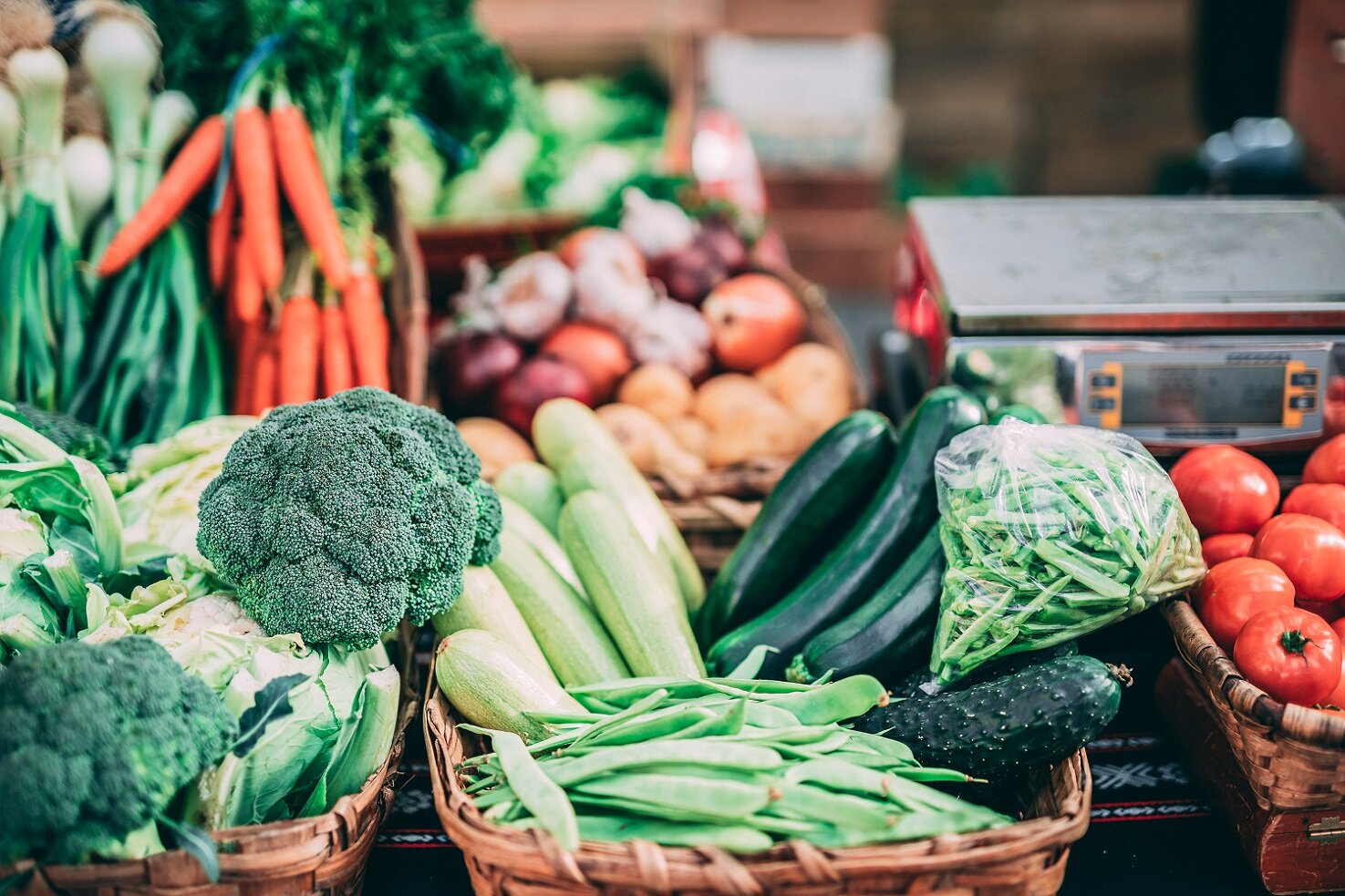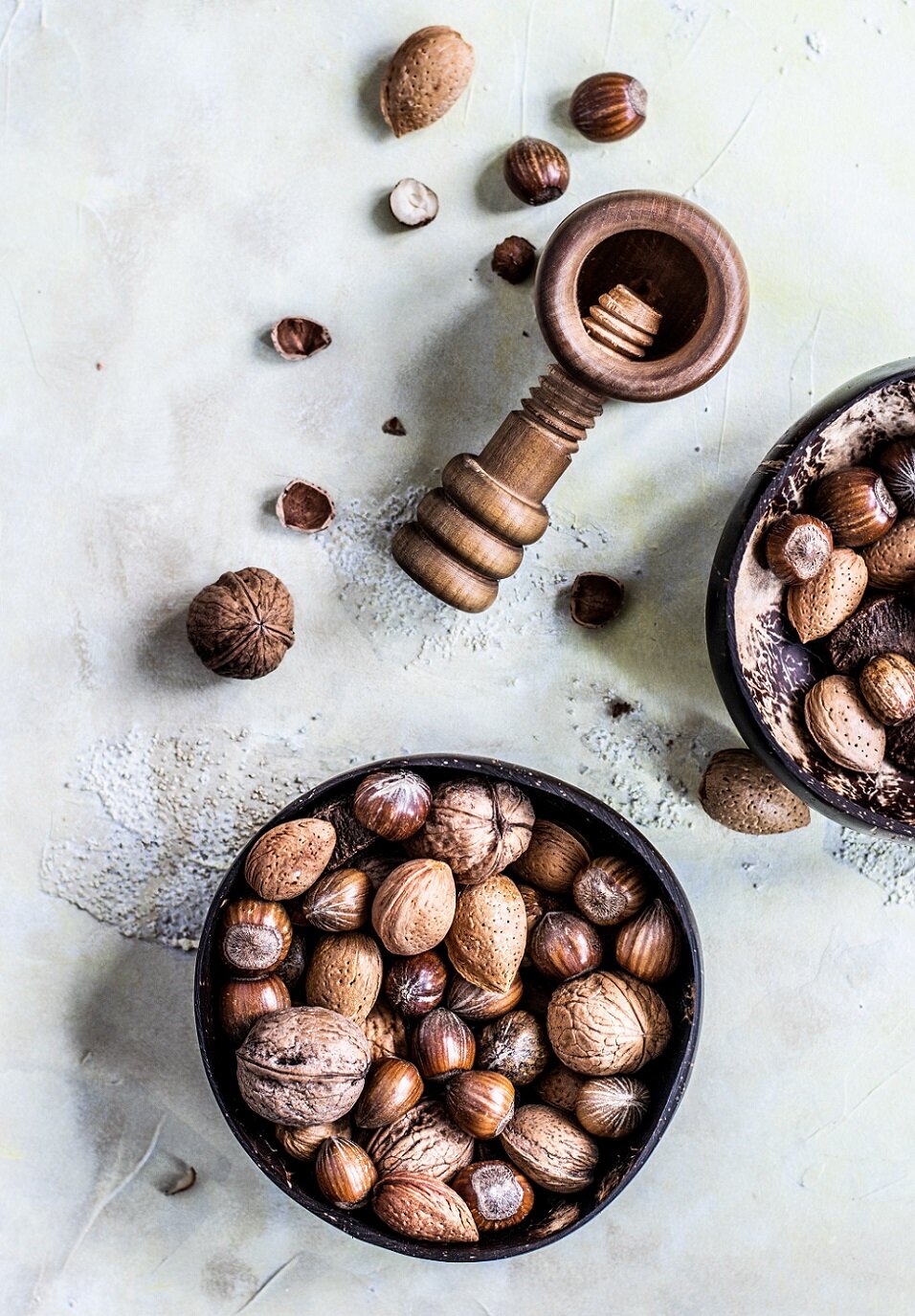How Can a Whole Food Plant-Based Diet Reduce Your Heart Disease Risk?
If you think heart disease isn’t such a big deal these days, think again: it’s the top cause of death for men and women alike in the U.S. In fact, more than half of all male deaths in 2009 were attributed to the condition.
What exactly is going on here? That’s what researchers want to know, so they’ve been exploring ways to reverse heart disease.
Is it any surprise that what you put on your plate can make a big difference?
Recent studies show that a Whole Food Plant-Based diet can stop heart disease in its tracks and even reverse the condition. These foods are also preventive, reducing the likelihood of coronary artery disease in the first place.
I’m sure you know people who have suffered from heart disease and heart attacks, and I’m equally certain you don’t want to join their ranks – and a heart healthy diet is an easy and effective way to control your risk.
This way of eating, which reduces artery-blocking cholesterol, is a natural, progressive, and healthy lifestyle approach that can change your sense of well-being profoundly.
It’s easier than you think
To gain the benefits, you need to switch to what we call a Whole Food Plant-Based diet. This does not require you to go strictly vegetarian or vegan, but it does ask you to reduce your consumption of animal products and processed foods.
In addition, you’ll also need to start eating a lot more whole, natural foods of the earth, such as:
fresh fruits and vegetables
nuts and seeds
whole grains
legumes (beans and lentils)
You can also incorporate foods that specifically promote heart health, such as:
walnuts
avocados
oats and oat bran
whole grains
apples
pumpkin seeds
spinach
berries
Let’s take a look at some of the reasons this type of diet is so powerful when it comes to promoting heart health.
We’ll start with an introduction to a commonly used but poorly understood word: cholesterol.
Cholesterol: What Is It and What’s All the Fuss About?
First, let’s get one thing out of the way: cholesterol is not inherently bad. In fact, it’s produced naturally by your liver and serves an important role in the health of your cells and hormones.
Although you do need a certain amount of cholesterol for optimal health, too much of it can lead to vascular (i.e. arteries and veins) disorders – and one quick way to make your levels rise is by consuming high amounts of animal products.
Research also shows that a high intake of cholesterol-containing foods, such as meat and eggs, may increase your cancer risk.
How does it do this?
First, let’s break cholesterol down into its two different types, which you may already be familiar with.
HDL (high-density lipoprotein) is often considered to be “good” cholesterol, and LDL (low-density lipoprotein) is sometimes referred to as “bad” cholesterol.
However, that’s a bit of an oversimplification because HDL and LDL are not strictly made up of cholesterol. To be more precise, they are the carrier proteins that transport cholesterol around your body and deliver it where it’s needed.
LDL is considered “bad” because when your cholesterol gets high, LDL dumps cholesterol in your arteries.
Excess cholesterol plays a big role in the formation of plaque in the arteries, putting you on the path to atherosclerosis.
Left unchecked, this buildup of plaque blocks your blood vessels. Even worse, it sometimes breaks off. Either way, your risk of stroke goes up.
If you limit your consumption of animal products like meat, eggs, and dairy, you’ll reduce your risk of creating the conditions that lead to heart disease and its associated complications.
Phytosterols – The Wonder Food
As you can see, lowering your cholesterol intake can promote healthy arteries – but you can also take this one step further by consuming phytosterols.
These plant-based cholesterol look-alikes, which are predominantly found in nuts and seeds, work to promote heart health by inhibiting cholesterol absorption in the gut.
Avocado is one food that is rich in phytosterols. One study has shown that consuming one avocado per day can significantly reduce cholesterol, especially the bad LDL variety.
Why Avocados and Nuts are Good for You
It’s not just the phytosterols that make avocados so heart healthy. This tasty fruit is also high in MUFAs (monounsaturated fatty acids), which help break down the protein transporters that carry cholesterol around your body.
Nuts are also high in MUFAs, making them the perfect snack for your heart, so grab a handful and read on!
Vitamin E Bonus
Another plus is that avocados and nuts are high in vitamin E, which is associated with a healthy cardiovascular system when consumed in whole food form. (Watch out for supplements, however, which studies show can actually trim months off your life.)
Consuming higher amounts of vitamin E from whole foods can cut your heart attack risk by one third, according to research. Sign me up!
Why Fiber Is Good for Your Heart
Research has shown time and time again that a high-fiber diet reduces your overall risk of cardiovascular disease and heart attacks by lowering cholesterol and blood pressure.
One of the bonuses of adopting a Whole Food Plant-Based diet is that it ensures you get plenty of fiber every day without really trying.
One long-term study of nearly 40,000 women found that those on a high-fiber diet cut their risk of heart attack by half compared to those on a low-fiber diet.
So how does fiber lower cholesterol?
Fiber binds to cholesterol, preventing it from being reabsorbed in the intestines and making its way into your bloodstream. Instead, it passes right out of your body. Good riddance!
Soluble fiber like that found in oats and apples is particularly beneficial. In fact, research has shown that eating oats can considerably reduce the likelihood of suffering another heart attack in those who have already suffered cardiovascular events.
Sugar – A Modern Evil
Modern Western diets are high in refined sugar, and this is contributing to epidemic levels of heart disease worldwide.
Refined sugars come mainly from processed, store-bought foods, including refined grains (such as white pasta and white bread), cookies, cakes, chocolates, and breakfast cereals.
Every time you eat sugary foods, your body produces insulin, a substance that takes sugar out of the bloodstream and into your cells so it can be used as energy. Too much sugar and constant snacking leads to high blood sugar levels and elevated insulin.
Why is having elevated insulin bad news?
It increases inflammation in the body
It creates an imbalance of fat molecules in circulating blood
It damages artery walls, which increases deposits of fatty plaques
It raises blood pressure
It causes the oxidation of fatty plaques in your arteries, making them more likely to break away and cause blockages or strokes
These are all very compelling reasons to keep your intake of refined sugar and processed foods to a minimum. Moreover, taking these healthy lifestyle measures often means you’ll lose excess weight in a natural and sustainable way. It’s a win-win situation!
A Whole Food Plant-Based diet is naturally low in refined sugars. Natural sweeteners, such as Medjool dates, mashed bananas, apple sauce, and maple syrup, can be used in dessert and snack recipes in moderation. These foods add a natural sweetness to whatever you’re making without causing huge blood sugar spikes.
Why You Need to Eat Your Greens
Eating leafy green vegetables, such as broccoli, cabbage, spinach and lettuce, can protect your heart significantly thanks to their high folate content.
Your body produces a biochemical called homocysteine as part of its natural metabolic processes, such as when we make hormones. Too much homocysteine can cause your arteries to narrow and raises your risk of stroke and heart attack.
Getting plenty of folate, along with vitamins B12 and B6, helps to lower homocysteine.
Not a fan of leafy greens? It’s time to get creative!
I sneak baby spinach and kale into many of my recipes and while they don’t make a difference taste-wise, they do give your meals quite a nutritional punch!
Are you Ready to Make the Change?
Nearly 1 in 3 people die of heart disease worldwide, according to the World Health Organization, but that doesn’t mean your fate is sealed. A Whole Food Plant-Based diet can stack the odds in your favor. It’s a powerful healthy lifestyle choice every one of us is free to make.
Sometimes the smallest changes can have the biggest impact.
What is ONE change you can make today to achieve a healthier lifestyle? What is one switch that your heart would thank you for? Let us know in the space below!
References
Estruch, R., & al., e. (2013). Mediterranean Diet for Primary Prevention of Cardiovascular Disease. New England Journal Of Medicine, 369(7), 672-677.
Hu, J., & al., e. (2012). Dietary cholesterol intake and cancer. Ann Oncol, Feb;23(2), 491-500.
Keys, A., Mienotti, A., Karvonen, M., Aravanis, C., Blackburn, H., & Buzina, R. et al. (1986). The Diet And 15-Year Death Rate In The Seven Countries Study. American Journal Of Epidemiology, 124(6), 903-915.
Knekt, P., Reunanen, A., Jävinen, R., Seppänen, R., Heliövaara, M., & Aromaa, A. (1994). Antioxidant Vitamin Intake and Coronary Mortality in a Longitudinal Population Study. American Journal Of Epidemiology, 139(12), 1180-1189.
Krajcovicova-Kudlackova, M., Babinska, K., & Valachovicova, M. (2005). Health benefits and risks of plant proteins. Bratisl Lek Listy, 106(6-7), 231-4.
Liu, S., Buring, J., Sesso, H., Rimm, E., Willett, W., & Manson, J. (2002). A prospective study of dietary fiber intake and risk of cardiovascular disease among women. Journal Of The American College Of Cardiology, 39(1), 49-56.
Ormazabal, V., Nair, S., Elfeky, O., Aguayo, C., Salomon, C., & Zuñiga, F. (2018). Association between insulin resistance and the development of cardiovascular disease. Cardiovascular Diabetology, 17(1).
Peou, S., Milliard-Hasting, B., & Shah, S. (2016). Impact of avocado-enriched diets on plasma lipoproteins: A meta-analysis. Journal Of Clinical Lipidology, 10(1), 161-171.
Wu, J., Leu, H., Yin, W., Tseng, W., Wu, Y., & Lin, T. et al. (2019). The benefit of secondary prevention with oat fiber in reducing future cardiovascular event among CAD patients after coronary intervention. Scientific Reports, 9(1).







